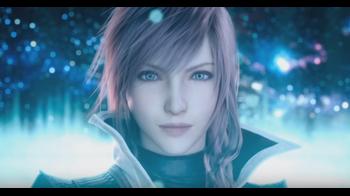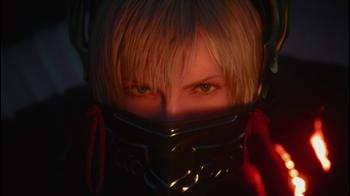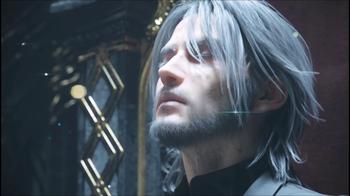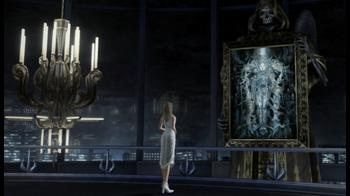
Fabula Nova Crystallis: the tale that defined a decade for Final Fantasy
Final Fantasy has turned thirty and we’re nearing the end of Final Fantasy XV's post-release updates with its grand climax planned for 2018. The end of a numbered entry’s promotion always feels special in a series which prides itself in reinventing with each iteration, but in the case of Final Fantasy XV, it goes beyond that. It’s an end to a decade-long journey that began back in 2006 when Fabula Nova Crystallis was first introduced to the world and was meant to define the series’ future.
As a relatively new fan, my nostalgia of the series is quite different from older fans of the “golden era”. I love the classics, particularly Final Fantasy VI to IX, which I consider to be rough gems of high quality that truly live up to their legacies. My nostalgia, however, is more tied to the first ones I played - Final Fantasy X to XIII. With XIII’s history in particular, it also meant constantly being involved in heated discussions about its parent compilation due to its various controversies, and before I knew it, seven years had flown by. Now that it’s almost over with XV’s journey reaching its conclusion next year, I can attest Fabula Nova Crystallis is a series of successes and failures, but mostly the latter. As it stands though, it still happens to be a compilation I grew fond of, and its accomplishments shouldn’t be neglected.
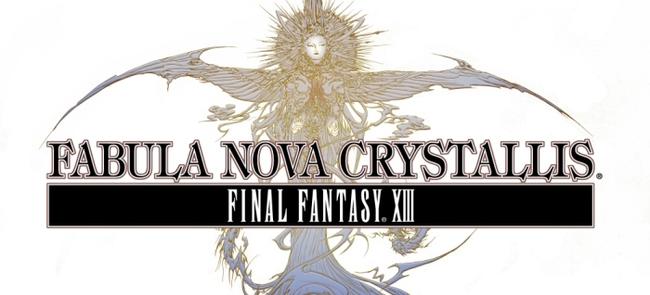
I think whether you’re a longtime fan or not, anyone will find the concept of Fabula Nova Crystallis itself to be pretty ambitious for an already long-running series of huge and diverse experiences. With its literal translation as “the new tale of the crystal”, it was first revealed in 2006 as a set of titles that would represent the thirteenth number: Final Fantasy XIII, Versus XIII, and Agito XIII. The intention was to present different takes on a new mythology about crystals, penned by series veteran Kazushige Nojima, in different universes. While on the one hand, Final Fantasy XIV had its own grand story of a successful revival in the MMO domain, these three XIII titles have transitioned into new brands of their own would be at the forefront. They represented the series’ reputation, often questioned recently in the constantly evolving triple-A RPG domain.
Lightning Strikes Thrice
Whether you were fond of her or not, Lightning has become one of the most famous characters in the series. Her face was plastered all over the world when she was used as the model for the prestigious Louis Vuitton spring-summer collection last year. Her immense popularity gave Square Enix the confidence to spawn an unexpected trilogy that was arguably unnecessary despite being largely successful for the company. She’s become the face of the series’ thirteenth mainline entry and thus contributed to Fabula Nova Crystallis ultimately dropping XIII from its brand.
Final Fantasy XIII is easily the most polarizing title in the series. The strong reactions towards its failure in meeting many fans' expectations can be attributed to many factors, all of which contributed to the troubles looming over the FNC compilation. As I said before, the entire concept was very ambitious, but Square Enix was dealing with the biggest contention that plagued the Japanese gaming industry during the previous generation: the transition to high-definition gaming. This obstacle was a sophisticated topic of its own and XIII, Square Enix's first HD Final Fantasy, was perhaps the biggest representative of its problems. The focus on the game's vision was obscure for the development team, a fact they admitted themselves. The massive constraints and issues of optimization within the game's Crystal Tools engine caused the team to cut off content that was large enough to make an entirely separate game. As a result, this affected XIII's overall quality, from its convoluted plot to underwhelming gameplay. It drowned amidst the rise of open-world western RPGs.
Despite all this, I still like Final Fantasy XIII to death. In fact, it's actually my most favorite in the series. I don't consider it to be the best one and it deserves many of its criticisms, but there's plenty of elements in it that brought genuinely refreshing improvements to the table. From natural character developments that didn't strictly rely on fixed arcs to its fast-paced and strategic Active Time Battle system, XIII is still a solid experience. The main cast also finally broke away from traditionally gendered roles, something final Fantasy rarely addressed before. I often think about how XIII would have benefitted from the current culture of episodic DLCs and expansions instead of the sequels it conceived. Final Fantasy XIII-2 and Lightning Returns were decent in their own right, but they felt too separate from the first game's spirit and harmed the numbered entry's overall quality of the narrative.
A New Type of Final Fantasy
I don't think many share this sentiment, but in hindsight, Final Fantasy Type-0 is the most successful entry in this troubled compilation. It only encountered the problems of localization because it came out when the PSP was becoming outdated. As a spinoff entry of its own, it did a fairly good job in expressing a new type of Final Fantasy. Director Hajime Tabata knew there was a lot more that can be done beyond Agito XIII's initial form as a mobile game, and he was right - the end result was a content-rich entry with in-depth gameplay that told a compelling tale on the tragedies of war.
Type-0's shortcomings arose when it was localized as a console and PC game for the current generation. With its small scale as a portable title, it was apparent carrying it over to HD would introduce new drawbacks when experiencing the gameplay. It was overall a good action RPG, but the game's limitations in its procedural and mission-based structure made it a bit unappealing in high-definition. If anything, the quality was dampened, but not damaged - instead, it may act as a good framework to experiment with for future titles in the Type series.
What made Type-0 a successful game though was the fact it achieved what it wanted to achieve: a dark take on a conflict in a Final Fantasy-style setting. Its brutality in combat is the most visible in the series, and the plot revolved around the themes of war and the cruelty of it all. Tabata expressed his interest in documentaries, which was effectively embedded into Type-0's narrative that followed the similar style of historical and political accounts. Though for some traditional fans it felt alienating, I think the unconventional aspect is true to the series' spirit of reinvention, and if this approach is retained in the next Type games it's something to look forward to.
Remnants of Versus XIII
Final Fantasy XV may no longer be a part of Fabula Nova Crystallis, but it's impossible for it to escape Versus' shadow. Its troubled past became one of the biggest controversies in the history of gaming development, and this, in essence, became a part of XV's narrative. Instead of delivering Versus' interpretation of the FNC mythos, Tabata decided that in order to move forward, XV must depart the compilation, and that started with the game's rebranding. This proved to be successful as, despite uncertainties, the team managed to finally release the game last year.
It can't be helped a lot of fans would continue to cling to Versus. Final Fantasy XV has arguably delivered one of the least satisfying stories in the series as the entire thing, including its extra materials outside of the game, evidently felt like Versus' leftovers were all thrown together in a rush. It's about what you'd expect from a triple-A RPG developed in a little under three years. It didn't help that due to its initial reveal as Versus, many were under the impression it had been in full development for a decade, inevitably causing unrealistic expectations. Aside from constraints in development time, the use of their in-house technology proved to be a challenge once again with the Luminous engine's problems in optimization for current gen platforms. The team also strived to compete in the current climate of open-world RPGs, with the segment becoming one of the game's defining elements combined with its road trip adventure. This decision would cause an imbalance that contributed to the game's weak narrative, invoking a polarized reaction from the fanbase.
Ultimately, it's the weakness of the narrative that became the main source of dismay. Versus was introduced and presented in such a grandiose manner - despite its original nature as a spinoff, it seemed to have all the elements appropriate for a mainline entry. It promised a dramatic and complicated plot influenced by Shakespeare's tragic tales, and many hoped for it to be the ultimate take on the FNC mythos as Nojima was its scenario writer. The fantastical approach using Italian Baroque influence in its architecture, lore and the use of Latin in its names meshed well into its contemporary art direction - the vibe of a fantasy based on reality was perfectly established. Not only were they never fully realized, but XV's story also ended up being too shallow; its narrative only kept afloat by the interesting but undeveloped chemistries between Noctis and the rest of the cast. The team knows this and is currently working hard on mitigating it with the release of small story patches and episodic DLCs since last year, a particularly unique situation for a single-player RPG these days. Whether this decision ends up being a success or not, the verdict awaits with its conclusion next year.
The New Tale of the Crystal
People were very hopeful and excited for Fabula Nova Crystallis. Beyond the fact it was a new generation of titles, it was meant to re-interpret the role of crystals in a Final Fantasy story. Since the first game, crystals were a source of life and power. Often abused by evil forces for their malign and twisted desires, the heroes would be given the ultimate task: to save the crystals and restore the light to the world. Crystals established Final Fantasy's formula of good versus evil, as they partook different forms in numbered entries that explicitly didn't have crystals in them and were instead symbolized.
Fabula Nova Crystallis' mythos, as its name foretells, was meant to depart from this theme. It was the ultimate opportunity for a Final Fantasy story to further explore beyond the tale of good versus evil. Crystals were still the source of life and power, but their concept held a new layer of duality as they were also the harbinger of tragedy and death for mankind. This type of concept isn't uncommon in fiction, but it opened the door to more possibilities for where Final Fantasy could go. XIII and Type-0 presented some of these ideas to an extent and we got a small glimpse of it with Versus' early concepts, we have yet to truly experience its full realized potential.
Although it ended up being a troubled compilation, I don't think it should be simply forgotten and left behind. The last decade was surely a series of trials and tribulations, but it brought up many lessons and opportunities for Square Enix to continue ushering Final Fantasy forward. It's unlikely they would return to Fabula Nova Crystallis anytime soon, but I definitely think they should once when they've finally found the right direction for it. In the meantime, we await the next retelling of the crystal's tale.
